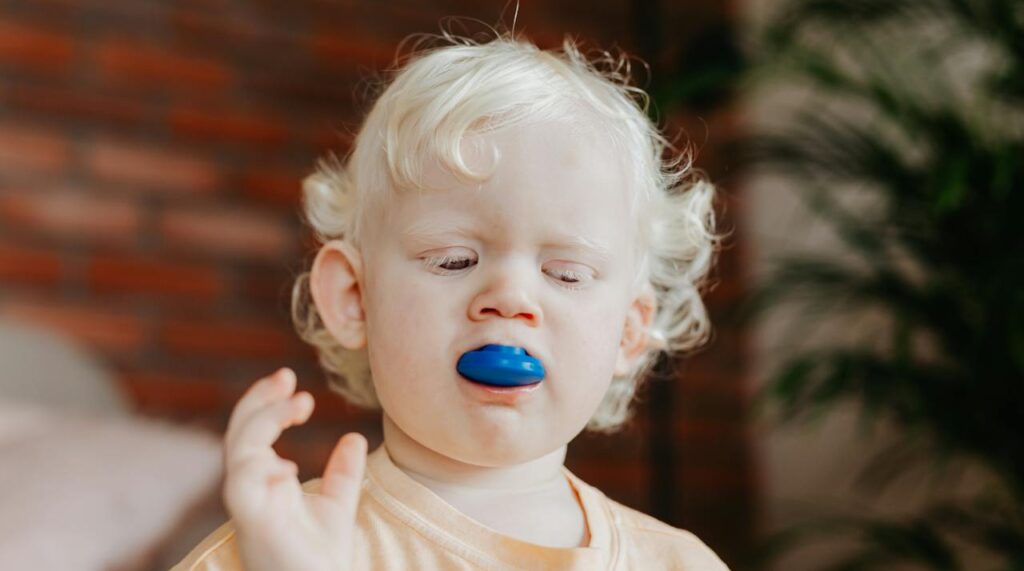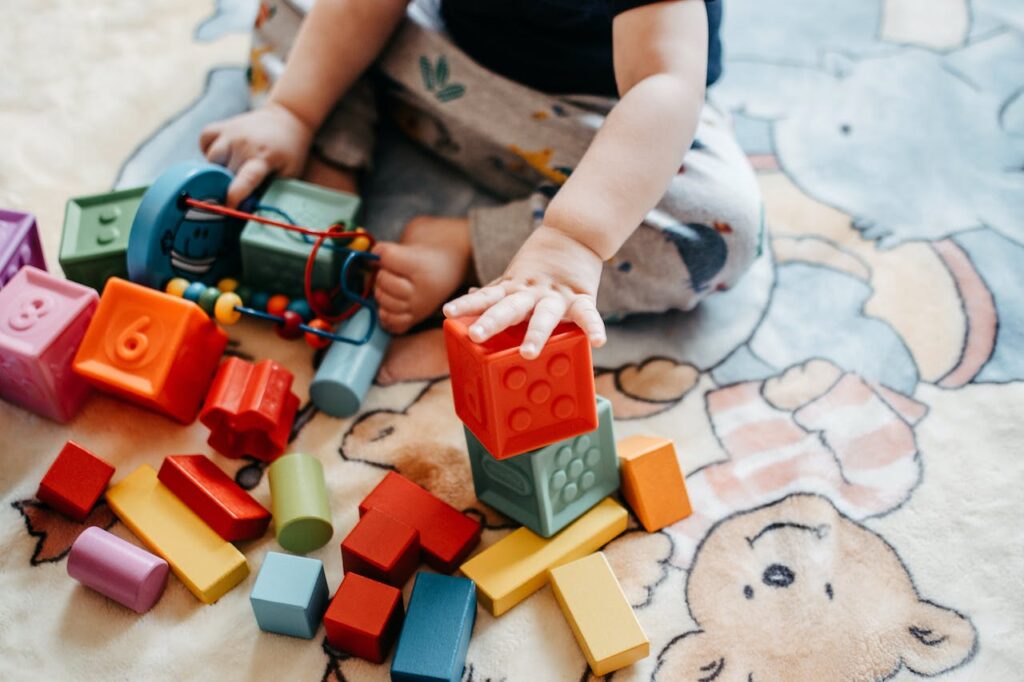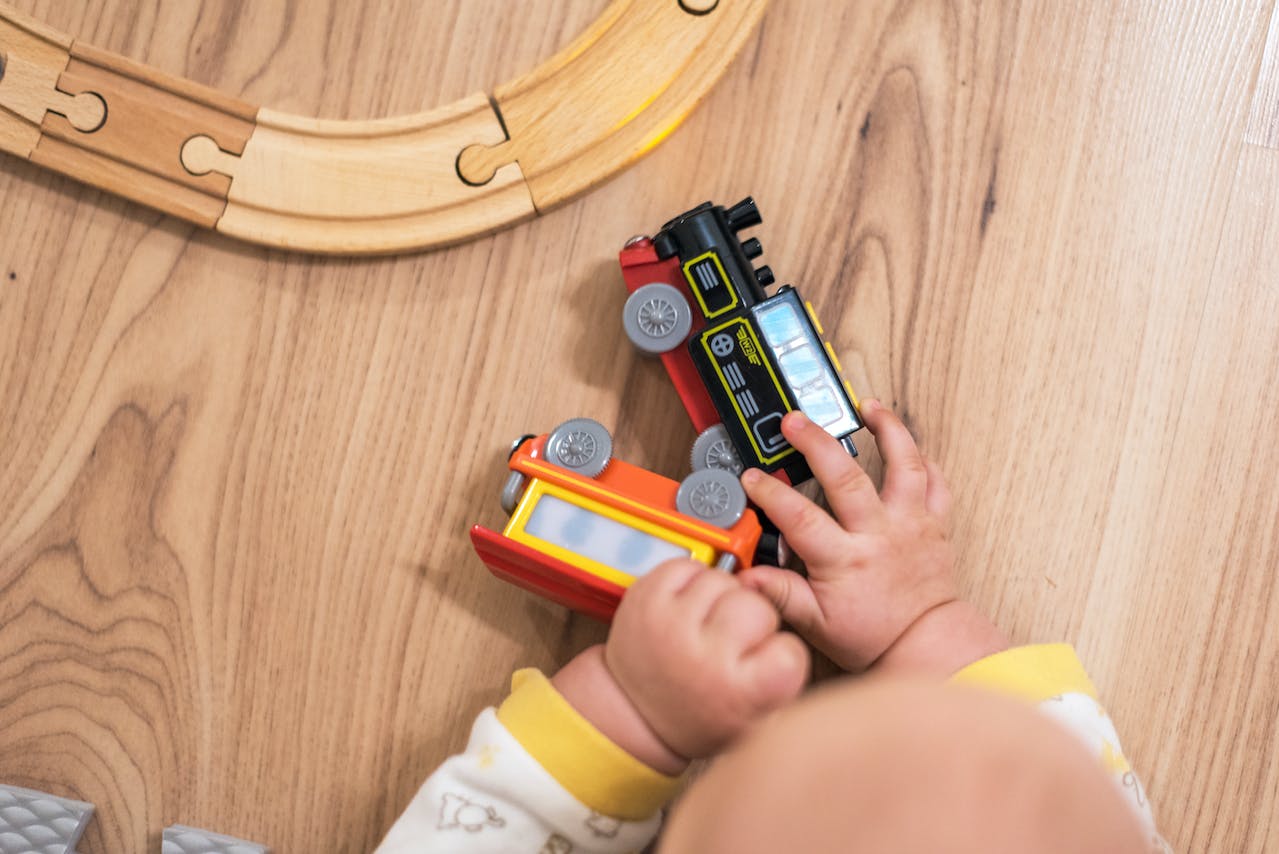Since Piaget’s theories were introduced, in the 1970’s, the study of how our youngest children learn has expanded enormously. Recent studies with young infants and toddlers indicate that Piaget’s approach to studying cognitive development may have underestimated the cognitive abilities of younger children. What remains consistent is that development happens through the development of a child’s biology, interactions with their environment, and their caregivers (Crone EA, Ridderinkhof KR. The developing brain: from theory to neuroimaging and back. Dev Cogn Neurosci. 2011 Apr;1(2):101-9. doi: 10.1016/j.dcn.2010.12.001. Epub 2010 Dec 13. PMID: 22436435; PMCID: PMC6987573).
Early childhood educators know babies and toddlers use their senses (taste, touch, sound, sight, smell) and motor exploration to learn. Yet, at the moment, when a toddler is licking that delicious-looking purple paint, it may not be easy to remember.

Sensory-motor exploration is how infants and toddlers learn. Here are some reminders for how early childhood educators can best facilitate and guide that learning.
✋ Touch/Tactile Exploration: When exploring how things feel, babies and toddlers grab, rub, reach, and pull. With hands, feet, and mouths, they use touch and motor skills together.
Create an environment where this is encouraged. Make sure that there are things they can pull without worrying about falling. Give them access to items that are soft, fluffy, silky, gooey, sticky, etc. Mix it up.
👁️ Sight/Visual Exploration: Babies are attracted to high-contrast patterns and bright colors, things that move, such as mobiles, events happening outside a window, and other children nearby.
Mobiles, colorful toys, and contrasting patterns can capture babies’ visual attention. Although screen time (phones and iPads) may seem to provide this visual stimulation, There are indications that too much screen time during infancy may lead to changes in brain activity, as well as problems with executive functioning — the ability to stay focused and control impulses, behaviors, and emotions — in elementary school. See: https://answers.childrenshospital.org/screen-time-infants/
👂 Sound/Auditory Exploration: Babies are responsive to sounds from birth. Research indicates that newborns recognize their mother’s voice. Early on, babies turn their heads toward voices, react to music, and are soothed by familiar sounds.
Provide opportunities for babies to listen to different sounds, such as gentle music, spoken words, or nature sounds. Babies find it much easier to follow simple directions when they are sung to them. Connect music to routines in the classroom—a song for getting ready to nap or go outside. Music to start and end the day provides auditory cures for babies and toddlers.
👃 Smell/Olfactory Perception: The brain’s olfactory (smell) center forms very early in fetal development. Studies have found that newborns have a keen sense of smell. Giving young children opportunities to use this well-developed sense enhances their learning. Since their olfactory system is so well-developed, include activities in the classroom that build on this sense.
Talk about the scents of simple materials, crayons, paint, hand soap, etc. Go on a scent walk around your classroom, school, or outside. Use peppermint or other oils in your playdough. Identify the scents of the foods in snacks and lunch. Create a Scent guessing game by filling small boxes with attractive scents- herbs and spices, earth leaves, fruits, and vegetables.

Motor Exploration:
Large Motor Exploration is exciting and complex for babies and toddlers. Early childhood educators look for changes in large (gross) motor skills such as pulling up, sitting up, standing, and walking as indicators of development. Babies develop gross motor skills by moving their limbs and exploring their bodies.
Give babies and toddlers space to roll, pull, crawl, and walk. Large foam blocks can create interesting gross motor challenges. Help them to challenge themselves by supporting their early efforts. There will be a lot of trial and error. Encourage children by giving them interesting toys and music to stimulate their interest in moving.
Fine Motor Exploration involves using the small muscles of hands and feet, grasping objects, picking up small items, and manipulating toys.
Offer toys with different shapes and sizes that encourage using fingers and hands. Moving small blocks from one pile to another, fingerpainting, playdough, and picking up stones and leaves all support fine motor development.
Proprioceptive Exploration is the awareness of one’s body position and movement. The proprioceptive system is how babies and infants learn where their limbs are in space. This awareness becomes essential when children start to play together. Proprioceptive awareness affects their understanding of physical boundaries and how much force to use when playing games like tag or holding a baby chick without squeezing too hard.
Play games that involve pulling and pushing, i.e., pushing a box that contains items or another child across the floor, rolling a ball back and forth, a gentle tug of war, or pushing a wheeled toy. When children are playing outside give them the language for identifying where their bodies are in space. “Your arms are up.” “Your feet are over your head.”
When we think of the differences between a newborn and a two-year-old it is truly astounding what human babies accomplish in this short time. As Early Childhood Educators, we are an important part of this accomplishment.
Let me help you with nurturing infant and toddler sensory motor skill development.
Elevate your understanding of early childhood education and child development with my engaging preschool education workshops tailored for both teachers and parents. These workshops provide valuable insights, practical strategies, and effective tools to enhance your role in nurturing young minds. Whether you’re an educator or a parent, these sessions aim to empower you with the knowledge and skills essential for fostering a positive learning environment. Dive deeper into the world of preschool education and child development by exploring my workshop offerings. For more valuable content and updates, follow me on Instagram and connect with me on LinkedIn. #EarlyYearsConsult
#EarlyChildhoodEducation #ChildDevelopment #PreschoolWorkshops #EducatorServices #ParentingTips #LearnAndGrow

